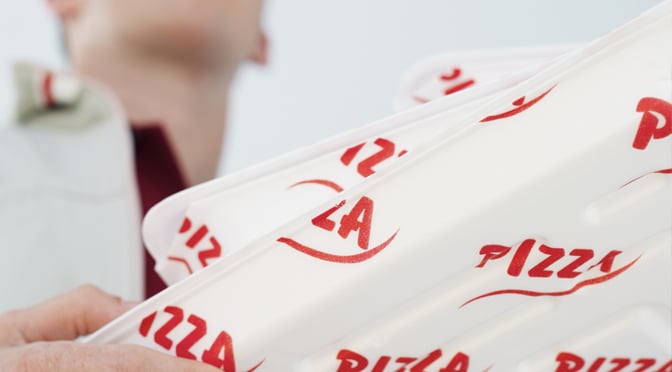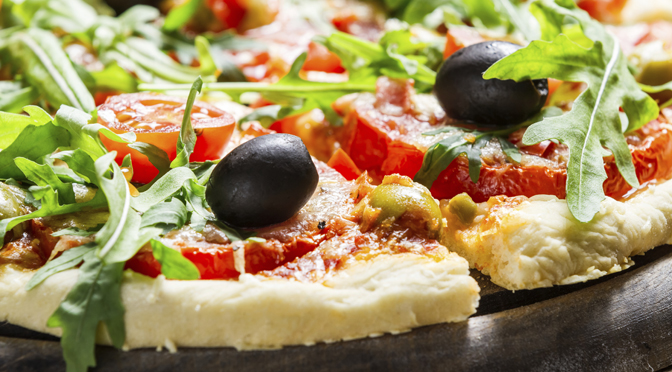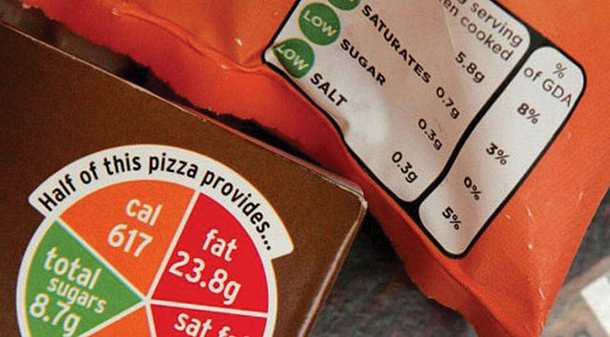If we believe recent, excited headlines that scream ‘pizza could count as one of your five a day’, then it seems we could all be racking up our fruit and vegetable portions by way of Italy’s finest export.
But before dashing to the takeaway, let’s look behind the headlines of a story that seems too good to be true.
The 5 A DAY menu
To date the 5 A DAY logo, which was launched by the Department of Health in 2003, was restricted for use on plain fruits and vegetables, and fruit and vegetable products with no added salt, sugar or fat (for example, some smoothies).
But recently, Public Health England (PHE) discussed whether it would be possible to add ‘composite foods’ – anything with more than one ingredient – to the 5 A DAY menu.
Eighty grams of fruit or vegetables contributes one portion towards 5 A DAY. PHE tested whether the equivalent 80g fruit and vegetable content of a ready meal – such as a pizza – could count in the same way.
Public Health England found that a significant proportion of these composite foods could count towards your 5 A DAY. However, they also found that many of these foods also contained high amounts of fats, sugar and salt.
In all 339 food products were assessed:
- 134 (40%) contained one portion of fruit and veg per serving
- 94 (28%) contained at least a portion of fruit and veg and low to medium amounts of total fat, saturated fat, total sugars and salt (ie met Department of Health Front of Pack Guidance for green and amber) The majority also met Public Health Responsibility Deal (PHRD) salt targets.
- Seven (2%) contained at least one portion of fruits and vegetables and were low in total fat, saturated fat, total sugars and salt (all in the Department of Health’s ‘green’ category) All seven also met PHRD salt targets.
So, while the majority of the food tested could count towards your 5 A DAY, only up to 30% of them were at least amber in terms of the DoH’s Front of Pack Guidance. And just 2% were all green in terms of labelling.
Check the labels
It might be tempting to think of a fruit pie or quiche as a way to achieve our 5 A DAY, but we also have to face the nutritional facts. Their additional salt, sugar and fat content could have an unhealthy impact on us, and may outweigh the benefits of the fruits and vegetables.
If you do purchase ready meals, be sure to check the labelling.
The more reds on a front-of-pack label, the less healthy the food is likely to be. Most foods with more than one or two reds should only be eaten occasionally. There are some exceptions that you can include in a healthy balanced diet. For example, cheeses are a good source of calcium and protein, and nuts contain healthy fats, vitamins and minerals. So you don’t need to cut out these foods altogether, just try to eat them less frequently or only in small amounts.
If a food has all or mostly greens, it’s likely to be a healthier choice and you can eat it often or in larger amounts. Amber means a food is neither high nor low in a nutrient, so you can eat foods with all or mostly ambers quite often.
For more information on making sense of food labelling, read our World Cancer Research Fund’s booklet.
How fruit and vegetables can help reduce your cancer risk
Eating fruits and vegetables, as part of a healthy, balanced, diet, can help reduce your risk of some cancers. For example, if everyone in the UK ate enough fruit, vegetables, and fibre, it is estimated that 1,500 cases of stomach cancer could be prevented.
Salty foods probably increase your risk of stomach cancer. Sugary, fatty foods can lead to weight gain, and being obese or overweight is linked to an increased risk of nine cancers, including breast and bowel cancer.
To help reduce your risk of cancer, put plant foods first – base your diet around wholegrains, pulses, vegetables and fruit. They contain nutrients such as vitamins and fibre and can help you maintain a healthy weight. And aim to eat at least five portions of fruit and vegetables a day.
For more information on 5 A DAY, or to see our what a portion of fruits and vegetables looks like, download our booklet, Eat Well For Life.


